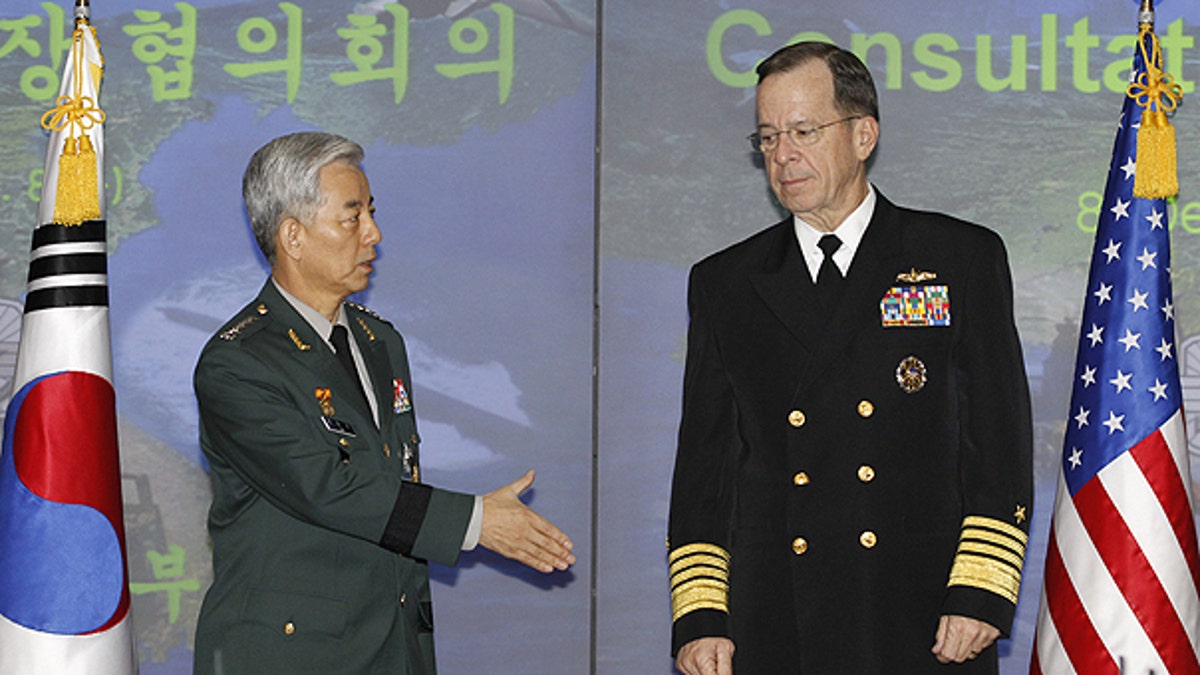
Dec. 8: Gen. Han Min-koo, chairman of South Korean Joint Chiefs of Staff, and his U.S. counterpart Adm. Mike Mullen pose for photographers before their talks at a headquarters of South Korean Defense Ministry in Seoul. (AP)
TOKYO – Turning up the pressure on China over the military crisis on the Korean peninsula, the top U.S. military chief said Thursday that Beijing has failed to live up to its role as a global power by not doing enough to defuse tensions.
Adm. Mike Mullen, on a brief stopover in Tokyo after visiting Seoul, said it is imperative China do more to lead North Korea away from escalating the threat of an all-out war, which he said would be calamitous.
North Korea launched a recent artillery attack on an island near a disputed border area that killed four South Koreans and is blamed for the deadly sinking of a South Korean warship in March.
"China must lead and guide North Korea to a better future," said Mullen, who is chairman of the U.S. Joint Chiefs of Staff. "There is too much at stake for this sort of myopia.
"There is no country in the world that has more influence in Pyongyang than China," he said. "That's part of responsible leadership. That's part of being a global power. And I would hope they heed this call and do that."
North Korea, which has few other allies, depends heavily on China for economic assistance and diplomatic support. China fought on North Korea's side during the 1950-53 Korean war.
Beijing has been cautious in placing blame or deciding punishments for the skirmish and warship sinking, and has instead called for all sides to exercise restraint. China has suggested more multilateral talks to deal with North Korea's actions and concerns over its ongoing effort to develop nuclear weapons.
China has also been critical of U.S. military exercises in the Yellow Sea that were conducted after the artillery attack, in part to send Pyongyang a message of U.S-South Korean cooperation and resolve not to be cowed by North Korean belligerency.
Beijing was wary of the exercises because they took place relatively close to Chinese shores.
Mullen defended the exercises as "transparent," said they were planned well in advance of the increased tensions, and added that the U.S. has the right to operate in open seas.
He also said he believed that U.S. allies in the region should carry out more multilateral maneuvers. In particular, he said he supports Japan joining in drills with the U.S. and South Korea.
Mullen said the lack of military-to-military ties between Beijing and Washington is another source of insecurity.
"One of the very difficult parts of the China-US relationship right now is we have no military-to-military ties," he said. "I don't understand much about what they are doing and why they are doing it."
To ease that problem, he said Defense Secretary Robert Gates is to visit China next month, and Mullen is to meet his Chinese counterpart next year.
